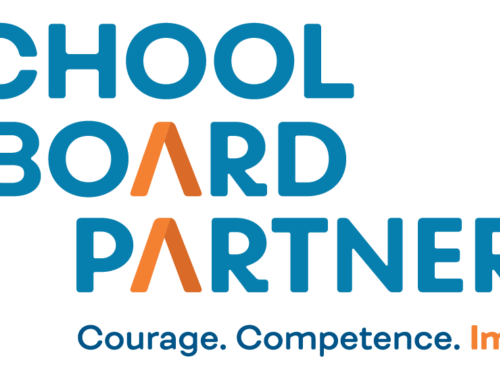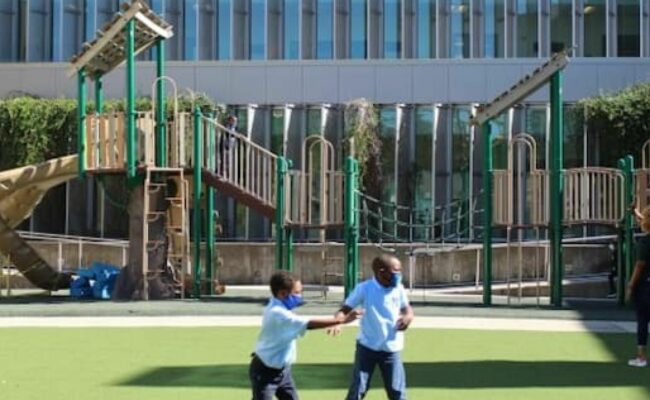In the past, New Orleans Public Schools’ strategic planning has been seen as an internal process. Now the district is looking to change that.
NOLA-PS has undergone some big changes in recent years — the biggest one being the reunification of the city’s all-charter system under the Orleans Parish School Board in 2018. Since then, the district has centralized some aspects of the system, like enrollment, while still leaving charter management organizations with a fair degree of autonomy.
Whether to give charter school leaders more or less control is just one of many issues the district is considering as part of its current strategic planning process, and they’re hungry for community input.
“Now is the time to channel this knowledge gained by our unique community of schools, as we came together this past year to keep our staff, teachers, and students safe,” Superintendent Dr. Henderson Lewis Jr. said in a press release. “And now is the time to plan for the future, to grow a district that continues to care for all its students, no matter who they are or where they come from.”
The process kicked off about a month ago. Since then, the district has arranged focus groups and held online forums. There’s an online idea bank, as well as a survey available in English, Spanish and Vietnamese.
Officials will share the feedback so far at a public input meeting later this month. The meeting will be streamed online and attendees are required to register in advance.
The district’s current strategic plan, which was adopted in 2018, expires at the end of this year. Lewis is expected to present the district’s new strategic plan for school board approval later this summer.
Education reporter Aubri Juhasz spoke with School Board President Ethan Ashley about his expectations for the strategic planning process. This interview has been edited for length and clarity.
Aubri Juhasz: You served on the school board three years ago when the district developed its current strategic plan. How has the planning process been different this time around?
Ethan Ashley: I’d say the process is different in many ways. I think the circumstances in which our district is currently situated is different. If you remember, July 1, 2018, was the first time that our school district was in any shape or form whole. Creating that strategic plan in 2018 as half a system made it much more difficult trying to figure out how to care for all students within the system, understanding that we didn’t have control of the full system at that moment.
Now that we’re in control of the system we’re trying to elevate the voices of the folks who really take advantage of our system, which is our public and our community.
What do you make of the decision to center this process on community voices? I think often there’s this tension between balancing the perspectives and priorities of education leaders and individual stakeholders. Sometimes they can have very different views that can be difficult to reconcile.
I think most people would acknowledge that the most important voice in this is certainly our families and young people. If every young person took themselves out of the system right now because they didn’t feel like they were being heard, we wouldn’t have a system.
I’ll also acknowledge that our system can’t run without really good educators who are dedicated to doing the services of educating our young people. I think our district is trying to do everything we can to engage our schools and our school leaders to hear from them.
Our system is certainly unique and there is a balancing act that we do. I think the most important thing is to acknowledge that our system runs from a central place, which is our district. Because of that, our schools are looking to the district to make sure that the vision that we create is comprehensive, inclusive of what we expect from them contractually and otherwise.
I think our charter board leaders are looking to us in this moment to say, ‘What is the vision?’ But we’re also asking them to inform that vision because they play a real huge piece in making sure that that vision is able to be actualized.
A lot of people — parents, teachers, students — are burned out from this past school year. Zoom fatigue is real. Is there any concern that the community may be unable to fully engage with this process right now?
As a parent of a young person in our public school system, I would say that there’s probably been no greater period in the history of our system in which parents are connected by virtue of the pandemic. I think we’re seeing parents and students taking real ownership over the education process and I’m excited about that.
I think we need to get the word out about the process, but, once people hear about the process, I’m telling you, they are not shy around opinions.
What are the biggest ways in which the new strategic plan could conceivably differ from the current plan?
Our current vision is that every student receives a high-quality education that fosters his or her individual capabilities while ensuring that they thrive and are prepared for civic, social and economic success.
While I think that vision largely represents where we want our young people to head, our district over the last couple of years has focused in on equity. We need to have some real clear stances on what it means to be an anti-racist, racially equitable school system and be very plain-spoken about that.
Last year our board had the opportunity to pass a racial equity audit and that audit in large respects started to trigger other aspects around our system becoming more anti-racist and racially equitable. The facility renaming process is just a sliver of the larger work that we need to be doing to really move our system in the right direction.
I’m looking forward to the results of the district’s racial equity audit. I want to make sure that we’re taking the experts’ advice and using that to inform our strategic planning process as well.
NOLA-PS hired Beloved Community, a local nonprofit consulting firm to conduct a district-wide racial equity audit. The audit is scheduled to be completed in July 2021.
I took a look at some of the questions that have been directed at focus groups so far. Two of the questions consider the balance of power between the district and charter management organizations and ask whether certain responsibilities should be shifted from one entity to the other. How important is this question?
The district is truly trying to bring those answers in to figure out what does and doesn’t make sense. From there we’ll have the opportunity to start to have a conversation with our partners to say, ‘Does this make sense to you?’
I will acknowledge that there’s some things that three years ago that were not centralized. For the first time this year, we had a centralized calendar that all of our schools signed on to. It kind of got swept under the rug because of the pandemic.

Related Blog Entries

Managing Climate Crises: Resources for School Boards
April 17, 2024
Ethan Ashley
Read More About Managing Climate Crises: Resources for School Boards



